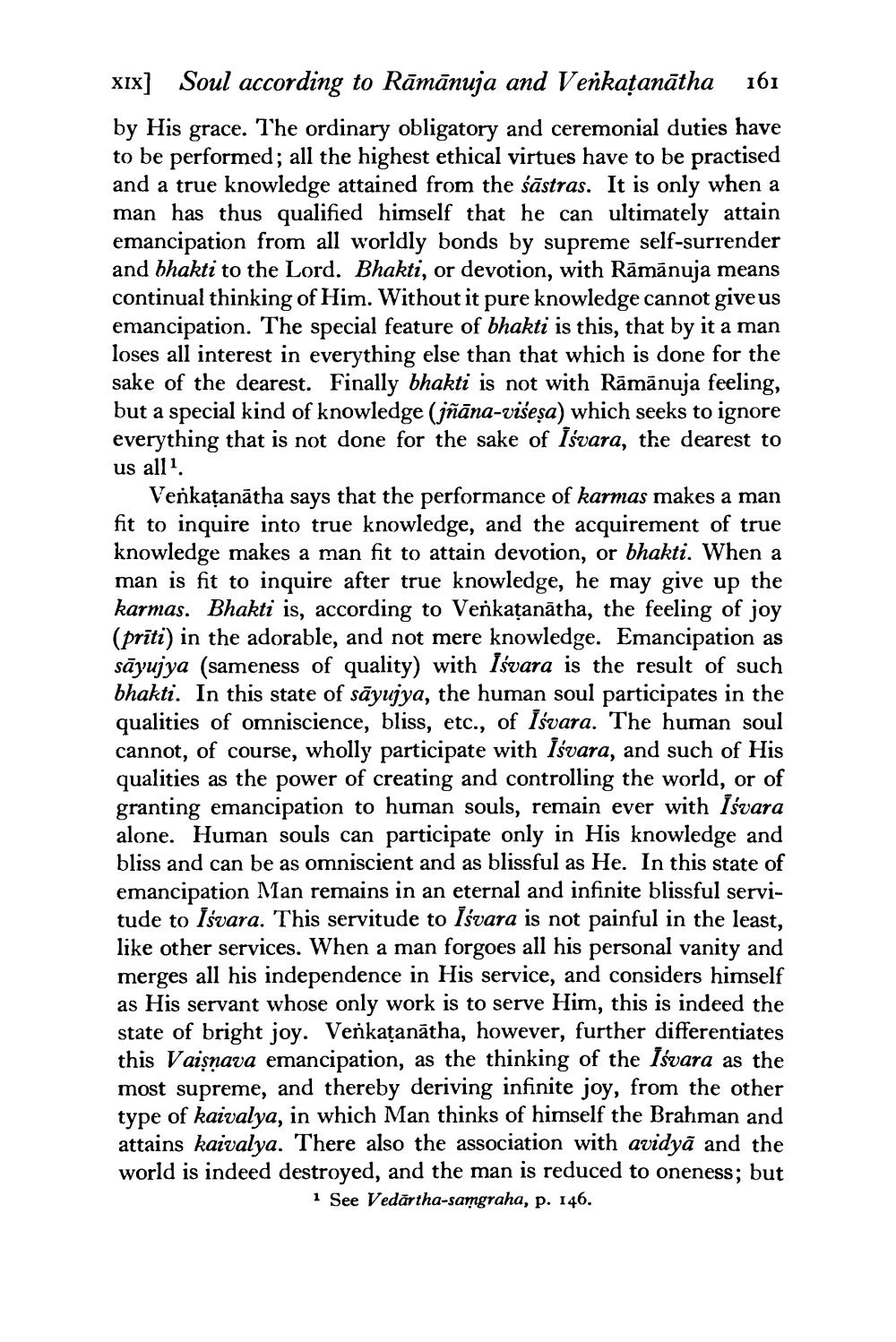________________
XIX] Soul according to Rāmānuja and Venkațanātha 161 by His grace. The ordinary obligatory and ceremonial duties have to be performed; all the highest ethical virtues have to be practised and a true knowledge attained from the śāstras. It is only when a man has thus qualified himself that he can ultimately attain emancipation from all worldly bonds by supreme self-surrender and bhakti to the Lord. Bhakti, or devotion, with Rāmānuja means continual thinking of Him. Without it pure knowledge cannot giveus emancipation. The special feature of bhakti is this, that by it a man loses all interest in everything else than that which is done for the sake of the dearest. Finally bhakti is not with Rāmānuja feeling, but a special kind of knowledge (jñāna-višeşa) which seeks to ignore everything that is not done for the sake of īśvara, the dearest to us all 1.
Verkațanātha says that the performance of karmas makes a man fit to inquire into true knowledge, and the acquirement of true knowledge makes a man fit to attain devotion, or bhakti. When a man is fit to inquire after true knowledge, he may give up the karmas. Bhakti is, according to Venkațanātha, the feeling of joy (prīti) in the adorable, and not mere knowledge. Emancipation as sāvuiya (sameness of quality) with Isvara is the result of such bhakti. In this state of sāyujya, the human soul participates in the qualities of omniscience, bliss, etc., of īśvara. The human soul cannot, of course, wholly participate with Isvara, and such of His qualities as the power of creating and controlling the world, or of granting emancipation to human souls, remain ever with Isvara alone. Human souls can participate only in His knowledge and bliss and can be as omniscient and as blissful as He. In this state of emancipation Man remains in an eternal and infinite blissful servitude to Išvara. This servitude to Išvara is not painful in the least, like other services. When a man forgoes all his personal vanity and merges all his independence in His service, and considers himself as His servant whose only work is to serve Him, this is indeed the state of bright joy. Verkațanātha, however, further differentiates this Vaisnava emancipation, as the thinking of the Isvara as the most supreme, and thereby deriving infinite joy, from the other type of kaivalya, in which Man thinks of himself the Brahman and attains kaivalya. There also the association with avidyā and the world is indeed destroyed, and the man is reduced to oneness; but
1 See Vedārtha-samgraha, p. 146.




